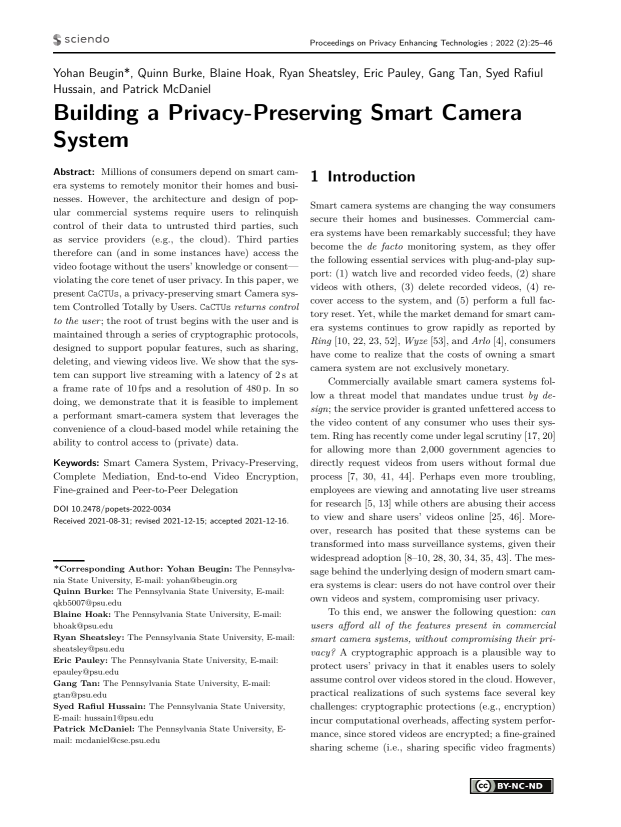Building a Privacy-Preserving Smart Camera System
Authors: Yohan Beugin (The Pennsylvania State University), Quinn Burke (The Pennsylvania State University), Blaine Hoak (The Pennsylvania State University), Ryan Sheatsley (The Pennsylvania State University), Eric Pauley (The Pennsylvania State University), Gang Tan (The Pennsylvania State University), Syed Rafiul Hussain (The Pennsylvania State University), Patrick McDaniel (The Pennsylvania State University)
Volume: 2022
Issue: 2
Pages: 25–46
DOI: https://doi.org/10.2478/popets-2022-0034
Abstract: Millions of consumers depend on smart camera systems to remotely monitor their homes and businesses. However, the architecture and design of popular commercial systems require users to relinquish control of their data to untrusted third parties, such as service providers (e.g., the cloud). Third parties therefore can (and in some instances have) access the video footage without the users’ knowledge or consent— violating the core tenet of user privacy. In this paper, we present CaCTUs, a privacy-preserving smart Camera system Controlled Totally by Users. CaCTUs returns control to the user; the root of trust begins with the user and is maintained through a series of cryptographic protocols, designed to support popular features, such as sharing, deleting, and viewing videos live. We show that the system can support live streaming with a latency of 2 s at a frame rate of 10 fps and a resolution of 480 p. In so doing, we demonstrate that it is feasible to implement a performant smart-camera system that leverages the convenience of a cloud-based model while retaining the ability to control access to (private) data.
Keywords: Smart Camera System, Privacy-Preserving, Complete Mediation, End-to-end Video Encryption, Fine-grained and Peer-to-Peer Delegation
Copyright in PoPETs articles are held by their authors. This article is published under a Creative Commons Attribution-NonCommercial-NoDerivs 3.0 license.


